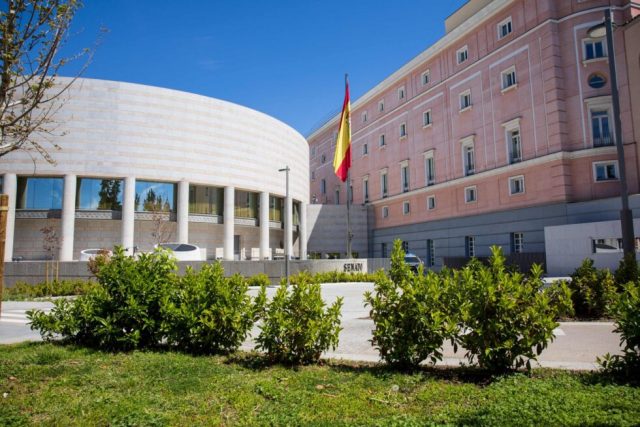
The Spanish presidency of the Council of the European Union has organised an inter-parliamentary conference on stability, economic coordination and governance in the EU, held in Madrid recently.
Among the different sessions, the first one has been dedicated to the challenges of European “governance” – a euphemism for a blurry way of management, in order to avoid the term “government”, and often to encroach into non-assigned competences.
The excuse for such change of “governance” has been to analyse the challenges in the context of a European Union’s desired economic recovery within the international context. The way to do so, presented by the Spanish presidency, has been fundamentally uncritical of the European Commission’s 2022 Communication, where there is a vague reference for enhancing inclusive economic growth via strategic investments.
However, how such strategic investments are to be controlled remains a mystery. Quite recently, ECR Member of the European Parliament Jorge BUXADÉ asked the European Commission about the way in which Pedro SÁNCHEZ’s socialist-communist government in Spain had disbursed EUR 28 billion under the Recovery and Resilience Facility (RRF), plus a further EUR 9 billion in pre-financing.
The suspicion that a potential cover-up of the Spanish Government’s disbursement of EU funds had taken place came from a European Parliament report of 16 May 2023, in which the Committee on Budgetary Control had already expressed major reservations about the supposed investments justified by the current government in Madrid.
In particular, Mr. Buxadé requested the Commission to ask Spain’s Minister for the Economy, Mrs. Nadia CALVIÑO, to specify what amount had actually been paid out to the final recipients, given that this information was omitted from her letter of 9 May 2023 and Parliament still did not know how much of the funding allocated to Mr. Sánchez’s government had been injected into the real economy.
Moreover, the VOX politician further recalled that, at the Barcelona Circle of Economy’s annual meeting on 31 May 2023, Mrs. Calviño had announced that she would request a further EUR 94.3 billion of EU funding before the general election taking place on 23 July 2023, mostly in the form of loans, which would need to be repaid by Spain’s next generations. It goes without saying that neither before nor after the request has Mrs. Calviño explained how much of the Recovery and Resilience Facility funding already disbursed has actually reached final beneficiaries.
The response by socialist Commissioner Paolo GENTILONI on such supposedly “strategic” investments undertaken by the left-wing government in Madrid does not seem very persuasive. According to his rationale, the RRF allows for payments to be made on the basis of member States’ plans and the RRF Regulation “does not require the Member States to report on the funding disbursed to final recipients”. In other words, if the plan looks strategic enough, there is no need to assure that it is properly implemented; that is, there is actually no control.
Furthermore, Mr. Gentiloni goes on to call Spain “a frontrunner in RRF implementation”, simply because it has been the first Member State to have received payments for each of the three requests it has submitted to the Commission. Incidentally, Spain has broken a record of unemployment with the current “social” government, the highest of the whole OECD, ahead of Greece, Costa Rica, Turkey and Colombia.
Mr. Buxadé also asked why certain regions had their funding applications been turned down, as this issue had also been raised by the European Parliament Committee on Budgetary Control. Mr. Gentiloni simply responded that, in the case of Spain, this had been so decided by “sectoral conferences”, without any explanation on the substance.
Finally, the ECR Member reminded that the Spanish government should provide the European Court of Auditors with access to the CoFFEE and Minerva systems, for the sake of prevention of conflict of interests when assigning the EU funds. In his response, once more, Commissioner Gentiloni avoided any responsibility on behalf of the European Commission, despite the existence of a Financing Agreement signed between the Commission and the Kingdom of Spain.



 Subscribe
Subscribe